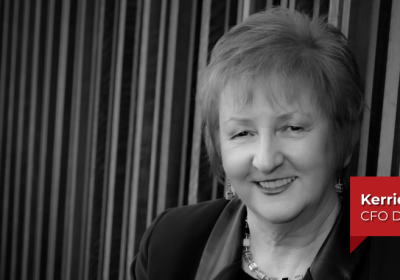
- Author: Nicole Madigan
- Posted: September 18, 2023
Personality, The Fabric of Finance!
When we think about creative industries, our collective minds most likely gravitate towards professions such as marketing, communications, or design. When it comes value-focused roles, we’re likely to lean towards human resources, culture leads, or team managers.
But what about CFOs, where numbers are the name of the game and effective strategies can make or break company fortunes? It’s tempting to pigeonhole the dynamic world of finance as one of technical skills and practical experience. And while these aspects are critical, the CFO role extends far beyond the traditional image of number crunching and financial oversight.
CFOs are strategic leaders and key decision makers. Many run teams. And all have their own unique personality and set of values, and these personal attributes drives them, whether they realise it or not.
In fact, personality, behavioural traits and values play a pivotal role in the way CFOs shape the financial futures of the companies they work for. From risk management, communication style, team dynamics and decision making, the interplay between personality and financial leadership has a daily and ongoing impact on finance teams, and in turn, organisations.
Michelle Clarke is the CFO of Griffith University. Despite studying commerce, numbers weren’t Ms Clarke’s first love – it was fashion.
“Before finance I worked in the rag trade in design and pattern making,” she says.
Over time, Ms Clarke gravitated towards production planning and costing, and eventually, she says, finance became the “natural next step”.
An interesting turn of phrase, given most people might assume finance and fashion to be worlds apart. Not Ms Clarke though, she believes the two are intrinsically linked.
“Fashion is a combination of art and science,” Ms Clarke explains.
“The art is the design, the science is making the garment work technically. Being a CFO is also a combination of art and science.
“The art is the story-telling, the context setting, and leadership. The science is the technical accounting and finance knowledge and experience.”
Ms Clarkes ability to link these two vastly different industries in this way speaks to the critical impact personality has on, not only how we do our jobs, but how we define our jobs.
Ms Clarke didn’t always want to be a CFO, but after she secured her first finance role, her mentor at the time said: you could be a CFO one day.
“I didn’t believe it back then,” she shares.
Since then, Ms Clarke has held multiple finance roles, including as a financial accountant, executive director and business services manager. She applied for the role at Griffith University in 2017 and has been in the role for almost six years.
Ms Clarke believes personal philosophies and values play a significant role in her position as CFO, particularly at university, where people and education is at the heart of the organisational objectives.
“One of my personal philosophies is to encourage people to develop their careers by trying different things and by pushing outside their comfort zone,” Ms Clarke says.
“This is to support their goal to develop their career and experience. This is the same as I was encouraged to do earlier in my career.
“My core values of integrity and honesty play a very important part too. I will never compromise my ethics.”
While the CFO remit includes the fundamental role of steering the financial direction of the company they work for, Ms Clarkes says there is no “one way” to do this.
“Given my interest in fabric and fashion, not surprisingly I tend towards creativity,” she explains.
“A ‘creative accountant’ has negative connotations, but being creative in problem-solving and looking for out of the box solutions and ideas can bring in novel ways of thinking.”
She says, this is particularly relevant when it comes to managing teams.
“The personality trait of creativity can influence managing teams by keeping an open mind and not ‘typecasting’ team members because of their job title.
“People are a lot more than their job title. Finding out team member interests and how they bring aspects of their own personalities to work can add deeper meaning to work relationships and job fulfilment.”
Ms Clarke believes her creativity plays an instrumental role in decision analysis and implementation.
“Creativity influences my decision-making by enabling me to actively explore different possibilities and trying to think from all angles,” she says.
But, Ms Clarke says it’s important to be mindful about how your personal views and personality traits influence the way you conduct yourself in your role as CFO.
“If someone is rigid, you might think there is no danger of any rules being broken. But if they are wrong in their interpretation of the rule, but insist they are right, it would not be a good outcome.”
According to Ms Clarke, there are five key areas that are directly impact by personality, behavioural traits and values. These are:
Risk assessment
“If a person has a conservative personality, they can be risk-averse and overstate the likelihood of a risk event or the outcome,” she says.
On the other hand, if adventurous or optimistic, the risk assessment could be understated.
“In my experience it is best to have a few minds assess risk to balance out these tendencies, and to use data and pre-defined ranges to improve objectivity.
Decision making
An eager and confident CFO may be quick to make decisions and jump to the first possible solution, explains Ms Clarke.
Conversely, if they’re meticulous and thorough, they may take too long to make a decision.
“Different circumstances call for different decision-making velocity. And the potential impact of a decision should influence the time and effort invested to understand the problem and decide the best solution.”
Team management
“Being courageous and sociable would positively impact team management,” she says.
While an introvert do the job, Ms Clarke believes this type of personality can make things more difficult.
“The truth is you need to be adaptable to lead a team made up of many different personalities. What is right for managing one person may not be best for someone else.”
Communication
Someone who is vibrant and confident can be a naturally effective communicator, but communication goes both ways, Ms Clarke says.
“So, someone who is empathetic and humble can make an excellent listener.
“Your natural personality will influence your go-to communication style, but it is important to match your style to the audience and the message you need to convey.”
Collaboration
People who are sociable, easy-going and adaptable are naturally great at collaboration, but not everyone has these personality traits.
“Using a variety of collaboration mechanisms would cater for people who prefer to work independently or are more controlling,” says Clarke.
“For example, more independent people prefer to have plenty of notice of collaboration required, and on what issues, so they can do their independent thinking alone ahead of time.”
While the best interests of the company need to be at the forefront of a CFO’s mind, when it comes to personality, Ms Clarke believes there’s one area that should never be compromised.
“Ethics, plain and simple.”








